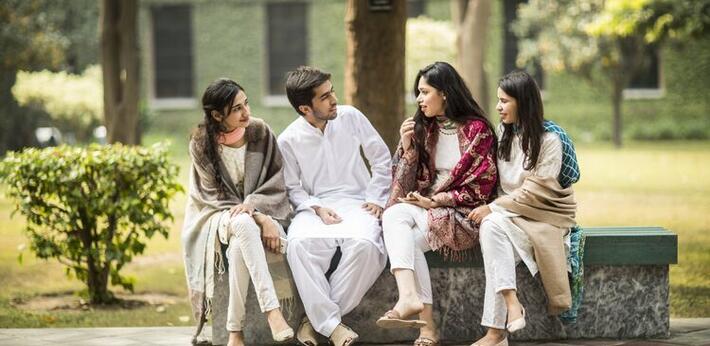You are here
Home ›26/08/2022
Highlights of Webinar on the UK-India agreement on Mutual Recognition of Academic Qualifications (MRQ) held on 22 August 2022
This was the first of the webinar series on MRQ hosted by the British Council to communicate and engage with the UK education sector to talk through the benefits of mutual recognition of academic qualifications, the potential it offers and the forward outlook in the UK-India education relationships.
The session was delivered by a cross-sectoral team from Department of Education, Department of International Trade, ENIC and British Council who had jointly led the MRQ negotiations with the Indian government. A short presentation made that day is enclosed.
This note summarises the main points of the discussion and the questions raised are going to be separately documented and shared through a FAQ document at a later date.
The UK-India MRQ was signed on 21 July 2022 by James Bowler, Permanent Under Secretary of UK’s Department of International Trade and Sanjay Murthy, Secretary Higher Education of India’s Ministry of Education. The historic outcome is a result of sustained hard work and efforts over the last 15 years. The MRQ agreement delivers the goal of the Enhanced Trade agreement and the 2030 Roadmap which distinctly sought to put MRQ in place to further cooperation between the two countries. It also fulfils the ambition of the UK’s International Education strategy as well as India’s own National Education Policy to increase education exports, diversify student recruitment and skills transfer.
The benefits of the MRQ agreement to the UK includes the potential to attract more international fee-paying students and allow for greater collaboration and greater diversity in UK universities. With the total benefit to the UK economy associated with one non-EU student estimated at £100,000 approximately, the net benefits of increases in student numbers are clear. Further, this agreement will also enhance more research and more collaboration between the two countries.
The MRQ MoU is quite comprehensive as it covers scope for TNE arrangements and allows case by case recognition of online qualifications. It allows for adjustment to new legislation that India might adopt in the future as it liberalises and opens up its education system for greater internationalisation.
The agreement is based on mutual benefits and the advantage for India as we understand is that it supports their ambition to internationalise Indian universities and tap the South Asia and East Asia education market. The USP of Indian education system is provision of affordable quality education and with internationalisation dimension added, it would raise the stakes higher and make it more attractive to international students. India would also like to balance mobility of students from the UK to India which they believe will be driven by the MRQ.
ENIC, the designated national agency for qualifications recognition provided technical leadership on behalf of the UK Govt in the MRQ negotiations. The British Council, as part of the Foreign and Commonwealth office in India represented the HMG to the Indian Ministry of Education and led the task force that was set up in December 2020 to renew discussions on MRQ.
It was important for both sides to develop an understanding of how qualifications compare in the two systems, address pinch points and that there is mutuality of benefits on both sides especially when there is no overarching multilateral framework in which qualifications can be compared.
All degree disciplines other than the professional degrees in the field of Engineering, Medicine, Nursing, Pharmacy, Law and Architecture are covered under the agreement. This agreement covers 80 per cent of courses that the Indian students choose to study in the UK.
Whilst MRQs removes the primary barrier to closer educational links between the two countries, British Council is also seeking to unlock opportunities to grow TNE exchange and particularly the online and distance education through its going global grant programme, study visits of Indian HE sector to the UK, creating opportunities for the UK sector to post online courses on Indian government’s free online portal called SWAYAM etc. The new call for the India going global programme is likely to come out in the second week of September 2022 with a focus on industry linkages and innovations.
Further, India looks very committed to liberalise and open up its education sector. The setting up of GIFT City and modifications to online education during Covid even though it was limited to Indian institutions are some of the opportunities in making and for the UK higher education sector to fruitfully engage in.
The UK government will continue to deliver on the International Education strategy with its focus on India and in the coming month, preparations are underway for the International Education Champion’s skills-based mission to India.
| Attachment | Size |
|---|---|
| 1.19 MB |






